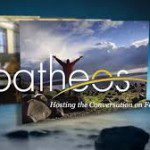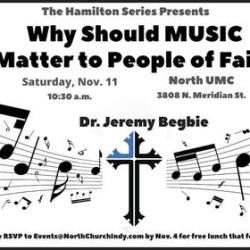I wanted to preface my review of the movie Bohemiah Rhapsody (which I posted yesterday) with some of the thoughts and interest I brought with me to the movie. But I soon saw that those would make much more sense in a separate post, and so I am including them here. I’ve begun working on a project about progressive rock and theology, and I was rather stunned when I read where Jerry Ewing, in his book Wonderous Stories “While no one would ever call Queen a prog band, early albums such as Queen (1973) and more specifically Queen II (1974) displayed a proggy art rock tendency…” (p.122). Unless one defines prog in specific narrow terms that beg the question, then the experimental character of Queen’s music is clear throughout their activity, and this comes through in the movie. We see them putting object on drums and in pianos, swinging speakers from a rope, as well as explicitly talking about being experimental and transgressing boundaries.
If it seems as though I am eager to include Queen in the book, I am. The album Made in Heaven (released after Freddie Mercury died) includes the songs with religious themes: Made in Heaven, My Life Has Been Saved, and Heaven for Everyone. And it seems to me that the long instrumental ending on A Beautiful Day (Reprise) makes Queen’s prog character, or at least influences and experimentation, clear, if eclectic drawing on opera and other genres, tempo changes, and use of recorded sounds do not do so. The album Innuendo similarly includes the songs Innuendo and All God’s People with religious themes. Bijou on that album once again seems to clearly fall in the prog category. And of course, A Night at the Opera which includes the song that gives the title to the movie that this post is about. If the case can be made to include Queen in the book I hope to write (together with a colleague in music), then I’ll want to explore more about the religious themes in their music, which go all the way back to the song “Jesus” on their very first album.
Does the above make Queen “prog”? And why has a Zoroastrian been singing about Jesus from the start? I want to explore the story, and dig behind the scenes as much as I can. Indeed, I’ve been thinking about which musical artists I might want to interview for the book, perhaps also doing a podcast in the process.
But at any rate, Queen is as much religiously transgressive as it is musically, not falling neatly into one category – even that of prog, which is defined (when it is defined at all) in terms of transgression of boundaries. The lack of clarity about whether the label fits makes it seem all the more important to discuss them in that context.
What are your thoughts on the topic? Is Queen more radically different from King Crimson, Yes, Genesis, ELP, Jethro Tull, Van det Graaf Generator, and Gentle Giant than each of those is from one another? Should Queen be included in a volume on progressive rock and theology?
Of related interest, check out this article on the connections between rock and science fiction. I think my first album-length connection with the band Queen was the Flash Gordon soundtrack…













